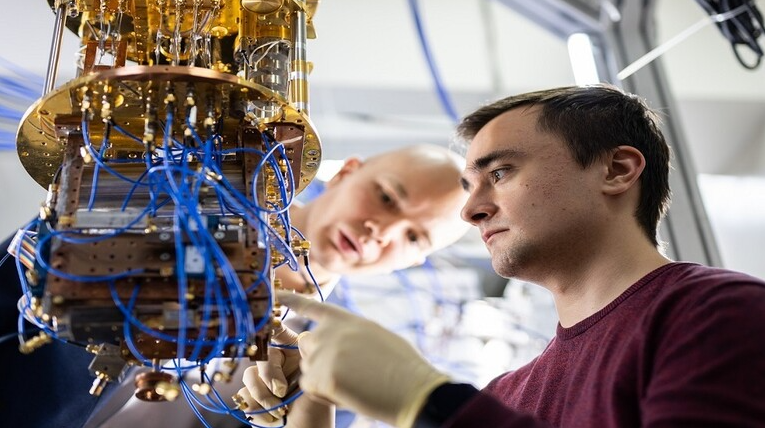
In the scientific realm of 2023, a noteworthy accomplishment emerged with the development and testing of various quantum computers equipped with error correction capabilities. This groundbreaking achievement was reported by the press service of the Moscow Institute of Technical Physics.
Gleb Fedorov, a senior researcher at the Moscow Institute of Technical Physics, remarked, “The year 2023 marked the inaugural experiment shedding light on the successful expansion of qubit systems accompanied by quantum error correction. This stands as a profoundly significant milestone in our field, considering the previous belief that operating multi-task quantum computers without error correction systems was unattainable due to the heightened sensitivity of quantum systems to noise.”
Fedorov underscored the pivotal nature of physicists confirming, through experimental means in 2023, that increasing the number of physical qubits embedded in quantum bits indeed enhances the operational quality and stability of memory cells and initial computing units in quantum computers.
Among the notable achievements in quantum physics for the year, as highlighted by Alexey Kavokin, director of the international “Apricosov” Center for Theoretical Physics in Moscow, was the development by Austrian physicists of the world’s first quantum signal repeater utilizing calcium ions. This advancement brings the global community closer to establishing a quantum communication network and developing distributed quantum computing systems with components situated at considerable distances from each other.
Addressing quantum error correction, a prevailing notion among physicists is that the ongoing evolution of quantum computers necessitates the creation of systems capable of autonomously detecting and correcting random errors during operation. Such errors arise from the interaction of qubits, quantum memory cells, and primitive computing units with their surrounding environment.
Scientists have found that addressing these random errors in quantum computers can be achieved through the utilization of logical qubits. These are virtual quantum memory cells comprising multiple physical qubits interconnected to automatically correct operational errors, enabling the execution of intricate calculations over extended durations.
In 2023, several scientific teams successfully developed quantum processors reliant on a substantial number of logical qubits. Pioneering experiments conducted on these quantum computers demonstrated, for the first time, that the incorporation of logical qubits effectively reduces the occurrence of errors during prolonged computer operations.
A noteworthy project in this domain is a quantum computer based on 48 logical qubits, developed in the United States by a team of scientists led by Russian physicist Mikhail Lukin, who serves as a professor at Harvard University.
Leave a Reply